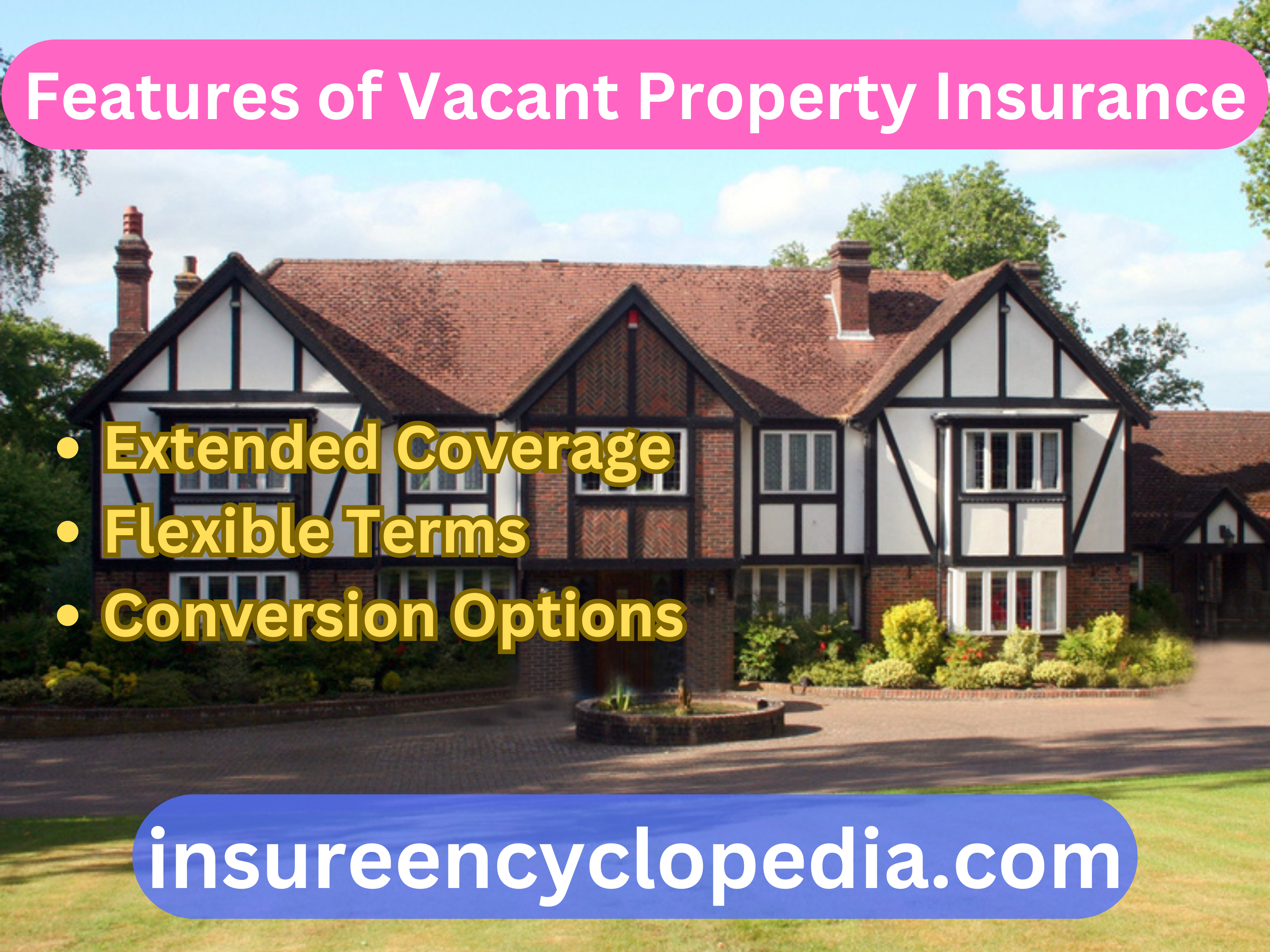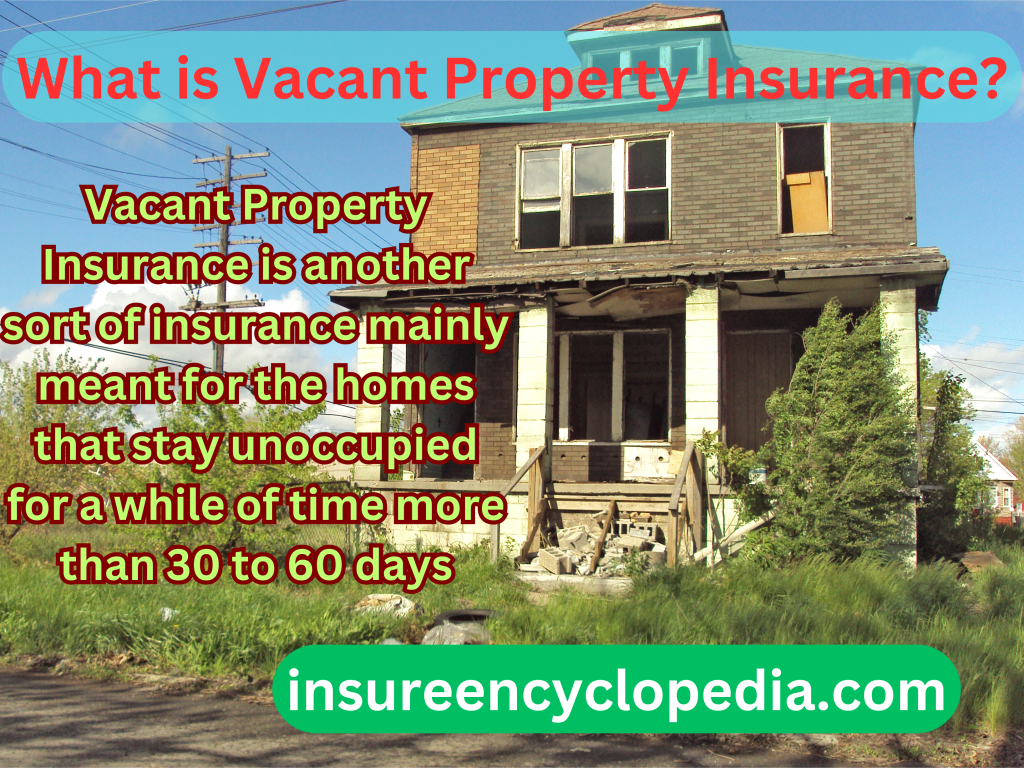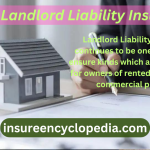What is Vacant Property Insurance?
Vacant Property Insurance is another sort of insurance mainly meant for the homes that stay unoccupied for a while of time more than 30 to 60 days. As a rule, the homeowners insurance plans do not embrace coverage of the houses, which are left without occupants because, as it has been stated above, the risks of the break-ins as well as arson attacks, etc., are considerably high.
Why One Require Vacant Property Insurance?
Thus, the vulnerability rises when the given property is empty because it remains easy to become exposed to various dangers. For example, a small leakage in an inhabited house may be corrected immediately by the occupants, while in an uninhabited house the leakage may remain undetected for weeks and hence lead to serious consequences.

Features of Vacant Property Insurance:
- Extended Coverage: Apart from the standard policy, there is the home empty policy that aims at covering risks that are common with most abandoned homes like vandalism, theft among other risks that water causes.
- Flexible Terms: All policies are open for the period of the vacancy, it can be in terms of months plus.
- Conversion Options: Several of the insurers allow customers to transfer from a vacant property policy to a landlord or owner occupancy policy in the situation of a change in status.
Common Challenges and Tips of Vacant Property Insurance:
- Higher Premiums:
- Challenge: Houses that are vacant are considered high risk when it comes to insurance because such a house is most likely to be broken into, vandalized or develop some issues such as leakage, fire among others and yet nobody will know. Hence, in normal circumstances, the costs of acquiring vacant property insurance is reckoned to be higher than that of property insurance in general.
- Tip: The policy should therefore be taken round the insurance market with the view of getting different quotes from different insurers in order to identify the most preferable in as much as premium is concerned. Consider boosting security, example, and buy severe alarms, employ security guards, and install cameras on your property as insurance companies recommend it and may lower the value of premium.
- Limited Coverage Options:
- Challenge: What some insurers offer is extremely limited coverage for an empty house and they also limit certain risks, for example, vandalism, theft, or water damage. This can sometimes mean that you are under insured in the event of anything happening to you as observed in some instances by some insurance companies with their policy holders.
- Tip: We also have that before one signs for a policy they should look at the exclusion and limitation policy. But let me clarify this, that there is other policy or additional coverage that can be had, for the simple reason that there are some risks that are not covered under a basic policy.
Secure your Vacant Property for Insurance Purposes:
The necessity of protecting your empty house can be explained by the following: Security, inasmuch as; the duties of the Vacant Property Insurance policy. These insurers, there are always certain standard security measures that the insurer would wish to be taken in order to minimize risks of loss, or from vandals, theft and so on, for the coverage to be approved or costs to be slashed. Here’s how you can effectively secure your vacant property for insurance purposes: This is how you can adequately protect your house that is up for sale or rental to be insured:
- Install Security Systems
- Alarm Systems: Home security which would enable it to alert an intruder or to dial your number or that of a security firm. Choose a system that incorporates the door and Window contacts together with the Motion Detectors.
- Surveillance Cameras: One has to remind her or him about installing security cameras especially where there are doors to the compound. Select those that enable you to monitor the security of your asset on your smart phone, or even computer.
- Motion-Activated Lighting: An example of physical security measures is fixing light to shed light on the exteriors of the property for instance fixing motion lights. This is an indication that such lights may help in reducing ‘would be’ vandals as well as thieves because the latter cannot tell when the former is on.
- Secure All Entry Points
- Locks: Make certain that all the doors, all the windows used has a good quality and secure locks. There are things like dead bolts in doors not to mention the barriers on the windows with their mechanical bolts.
- Board up Vulnerable Windows: If the house is located in the area with high incidence of theft or perhaps if the house is of high security concern try and shut all the windows since they are probably the most probable point of entry of the robber.
- Garage and Shed Security: Other repeat space such as a garage or a shed should also not be pass up as well. Ensure such structures are well fenced and well enclosed as some of the intruders could use this structure to gain entry in the building or where desirable items may be kept.
- Regular Inspections
- Frequent Visits: Visit the property often either by yourself or the property manager / or a reputable neighbor of yours. This is in light of the fact that through often inspection one is better placed to identify and maybe even address issues for example the leakage, break-in or even general maintenance issues at the right time.
Conclusion
Blind end property insurance is one of the security measures that property investors employing some of the challenges related to an empty house undergo. Whether the property is a home whilst waiting for people to move back into it, a rental house or a business property that is waiting to be sold or redeveloped then vacant property insurance is exactly that insured value of the building and other structures plus all the other risks that normal homeowners and/or commercial property insurance will not cover. Some of the causes of vacant properties include: Since the building is empty, it attracts neglect, defacement and pilferage due to lack of occupants among other factors that make vacant property at high risk.


